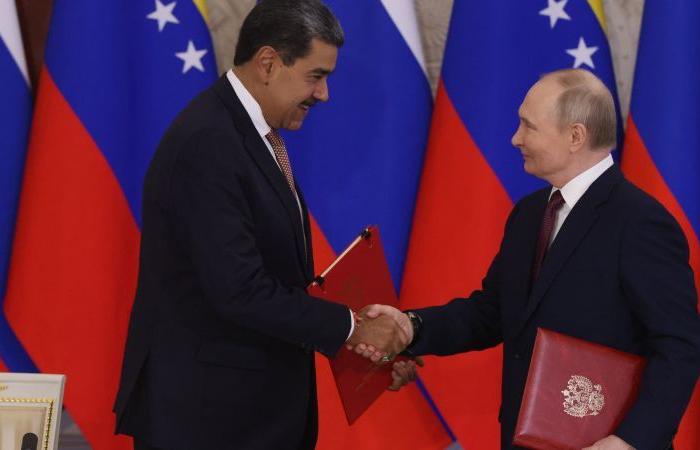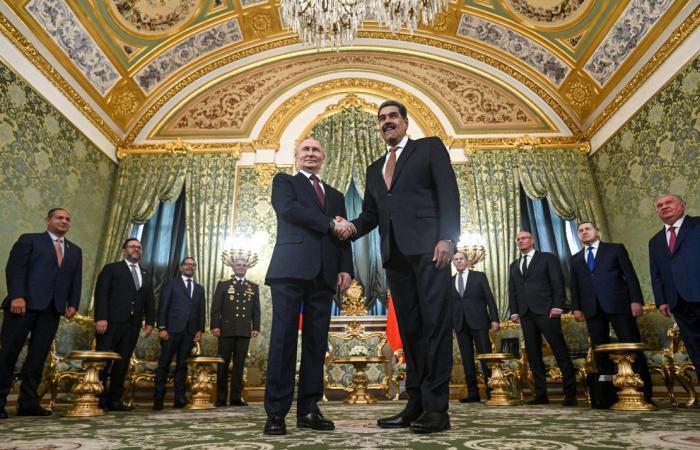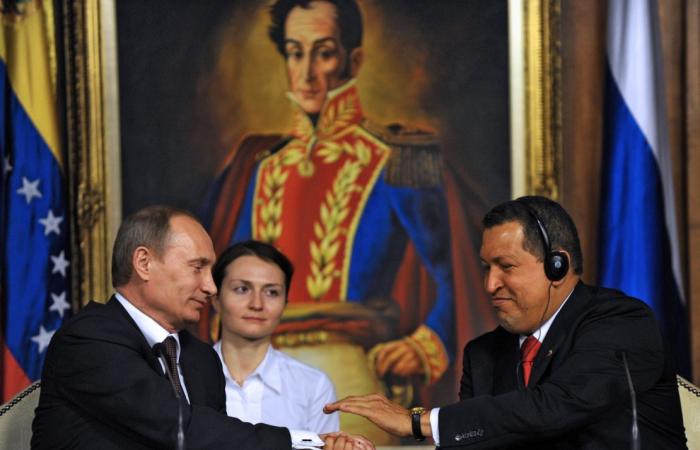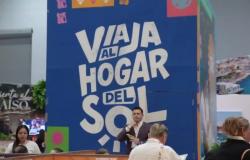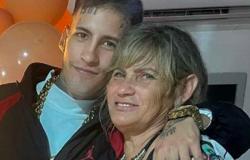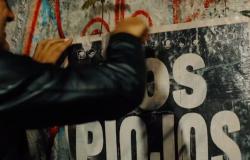CNN Españoñ —
Nicolás Maduro traveled to Moscow to participate in the celebrations of victory day, which commemorate the Soviet victory over Nazism in world war II every year, and in that context, the president of Venezuela held a bilateral meeting with Vladimir Putin.
“Truly, the Red Army with their great victory, the Russian people and the Soviet people with their political and military heroes, with a sacrifice of 27 million human beings, saved Europe and saved humanity,” Maduro said at the beginning of the meeting in the green room of the Kremlin Palace, according to Efe.
The Russian presidential advisor, Yuri Ushakov, had anticipated that the meeting would be in “broad and reduced formats” and added that the Latin American country is a reliable partner of Russia in the region and in the world in general, according to the same source.
Putin was “very grateful” that the Venezuelan president has found time to travel to Moscow “on such a special day” for Russia.
“We always remember our friend, Hugo Chávez. He was a brilliant leader not only for our country, but for all of Latin America. He was, without a doubt, our friend. You continue your work and we wish you all the best. Welcome to Russia!” Said Putin.
But more than a common project, the link can be seen as more strategy. “The bilateral relationship is a reflection of the antioccidental will of the foreign policy of both countries, and in the specific case of Russia it is an attempt to combat its own International isolation strengthening ties with countries that are being left as ‘Parias’, Juan Negri, a specialist in international relations.
Negri added that Russia has a specific interest in strengthening a country like Venezuela in the so -called US rear courtyard. “It is a way of playing and ‘disturbing’ in geopolitical terms.”
Maduro’s trip also coincided with the number 80 anniversary of the bilateral relationship between the two countries, which the Venezuelan defined as “a good time” to give a boost to bilateral cooperation in order to turn it into a “integral relationship.”
Indeed, the parties took the opportunity to sign a bilateral agreement of “Strategic Association and Cooperation”, whose document covers “practically all the key issues of the agenda of bilateral relations,” according to Ushakov anticipated and, according to Venezolana de Televisión, will have an effective term of ten years.
Spokesman Dmitry Peskov anticipated journalists who would be a “marking, substantial and very important document”, although he did not give more details. CNN contacted the Venezuelan government to know the specific aspects of the agreement, but so far has not obtained answers.
After the firm, Russia and Venezuela said they would promote joint initiatives within the OPEC+, in the forum of gas exporting countries and other organizations in the energy sector. “The parties will promote the long -term balanced and stable development of world energy markets without resorting to unfair competition instruments,” says the agreement, according to Reuters.
Cooperation in the exploration and development of new oil and gas deposits in their joint companies were also agreed, as well as the extension of oil trade operations, according to the same source.
The document even provides for a narrower cooperation between Russia and Venezuela in the United Nations and other organizations and in the field of arms control, together with the joint opposition to the imposition of unilateral sanctions.
This Wednesday, although he considered that the potential is much larger, Putin had unleashed that the commercial volume (US $ 200 million) between the two countries increased 64 % in 2024 and highlighted the “good prospects” in many lands, such as energy, transport, logistics, health and pharmaceutical industry, possibly advancing some of the fields covered by the agreement.
At the time of announcing it, last March, Putin had expressed: “Russia and Venezuela have related positions in different areas of the international agenda. Together we aspire to a more just world, a fairer world order and propose the principles of sovereignty of states, cooperation, without external interference in internal affairs.”
The previous meeting between Putin and Maduro took place in October 2024 in the Russian city of Kazan, on the banks of a BRICS group that Venezuela wanted to adhere as a full member, without its request receiving the approval of Brazil.
Before that, Russia was one of the first countries to recognize Maduro’s victory in the July 28 elections in Venezuela, even though the opposition showed other numbers and published the alleged minutes with the broken results, which the National Electoral Council never showed.
“I am sure that their activities in front of the state will continue to contribute to their progressive development in all directions,” Putin said then.
Although diplomatic relations between Russia and Venezuela turn 80, the last stage was marked by the almost simultaneous arrival of Hugo Chávez and Vladimir Putin to power, at the end of the nineties and early 2000s.
“The relationship is strengthened as a result of the search for ‘non -western’ alliances, alternative alliances. Chavismo wanted was to show some autonomy before the hegemón regional and world that was the United States. It is a well -known idea in international politics that was translated at some point in non -aligned, in another in the so -called Third World, and others, ”said Negri to CNN.
The link was reinforced on the military plane, when Venezuela began to buy weapons from Russia after in 2006 the United States, its usual supplier, stopped its weapons exports to the country, which it accused of not cooperating in the fight against terrorism promoted by Washington. Especially between 2007 and 2013, the purchases of weapons from Venezuela to Russia multiplied.
Venezuela currently operates a large number of Russian military team, which coexists with American and European material bought in previous governments. According to the 2024 military balance of the International Institute for Strategic Studies (IISS), the T-72b1 tanks and armored transports of BMP-3 and BTR-80A troops are operated; the BM-21 Grad and 9A52 Smerch rivers; the attack helicopters MI-35m2 Hind; and the SU-30MKV hunting.
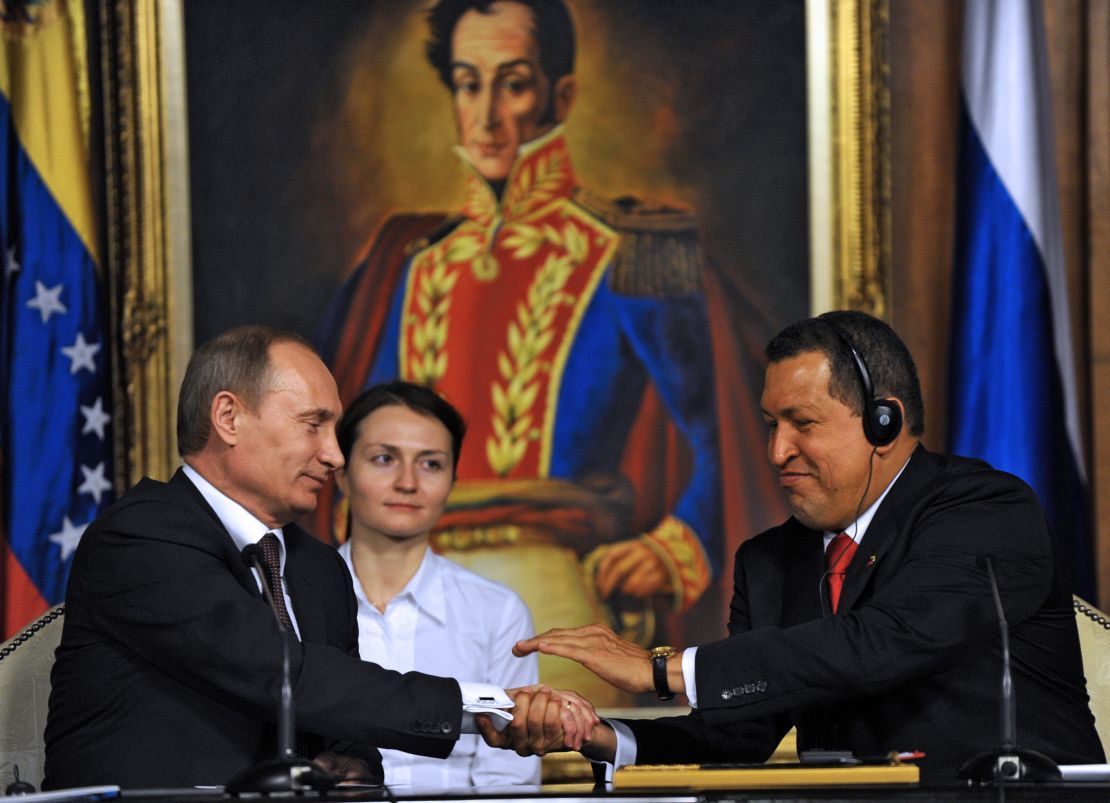
Then the cooperation agreements and the numerous meetings among their leaders grew. Chávez visited Moscow for the first time in 2001, and continued traveling regularly during his presidency. So also did Maduro, who also moved the European PDVSA Office of Lisbon to Moscow (while collaboration with the Russian state oil company Rosneft grew).
On the other hand, in September 2008 a fleet from the Navy of Russia visited Venezuela and carried out naval exercises in the Caribbean, strategically near the United States, for the first time since the Cold War.
It was the first of many visits from the Russian Navy over almost two decades: precisely this August 6, the Smolny school ship arrived at the port of La Guaira, in Venezuela, after passing through Cuba, according to the state agency TASS. A month earlier, it was the turn of the Gorshkov frigate.
Diplomatic support exchanges have also been recurring in these years: in February 2019 Russia – along with China – vetoed a resolution of the UN Security Council that declared the 2018 presidential elections as unfair and requested the realization of new elections.
While in March 2022 Maduro, shortly after the Russian invasion of Ukraine, he showed his “support for the decisive actions of Russia” and at the same time “condemned the destabilizing activity of the United States and NATO.”
Precisely, the war in Ukraine, which has led to the United States and Europe to establish new sanctions against Moscow and has generated a huge economic cost for the Russian State, in addition to deep international isolation.
“Chavismo always raised it very explicitly: I am close to this country that is the alternative to American imperialism. In that package of countries is Russia, but they are also Iran and China. Then, as Venezuela goes from being a democracy with many problems to be an authoritarian regime, these alliances are increasingly relevant due to the greatest international isolation,” said Negri.
And the isolation situation is also shared by Moscow, especially after the invasion of Ukraine, so – explains the expert – “there is among them a dynamic of mutual dependence.”

